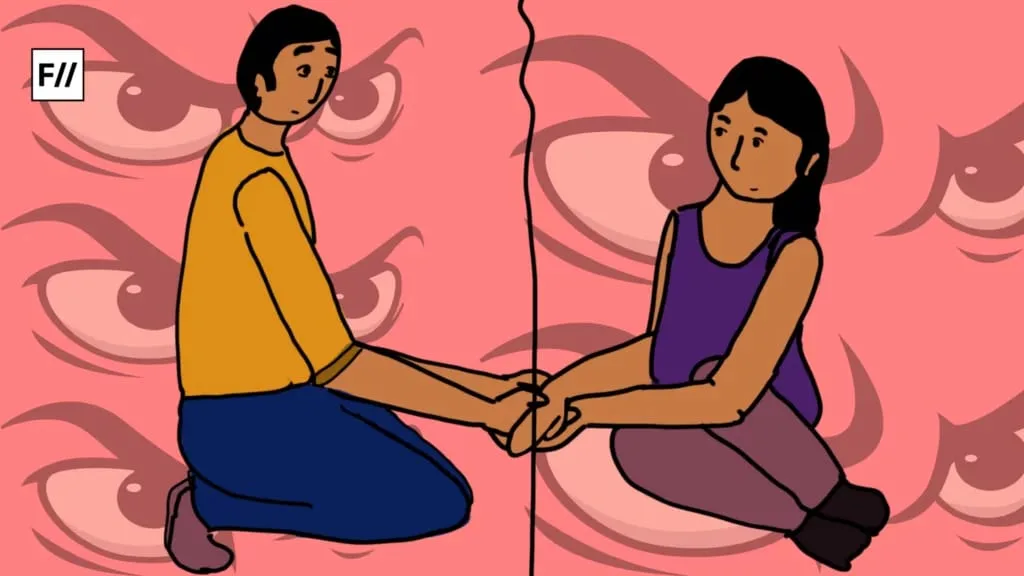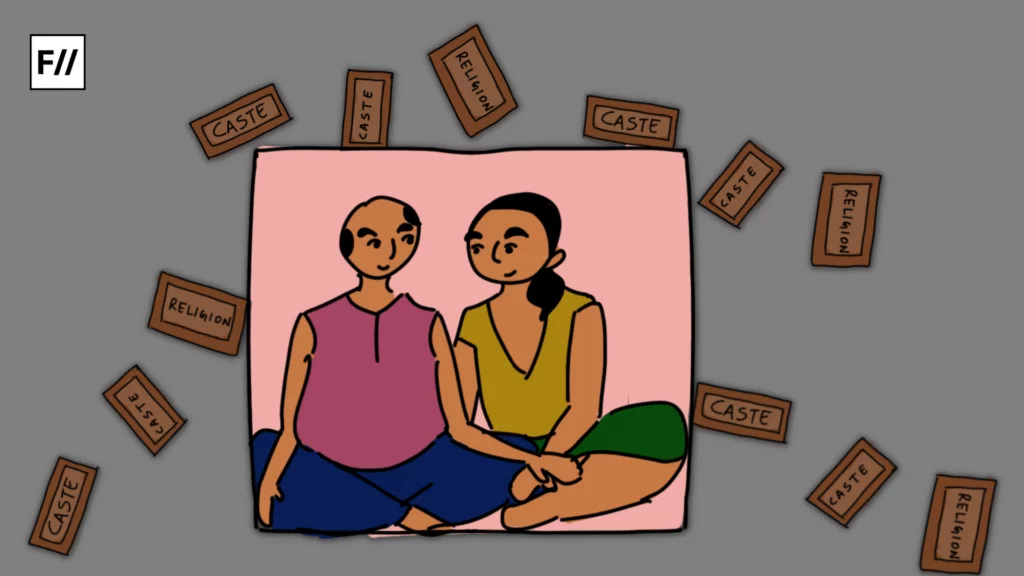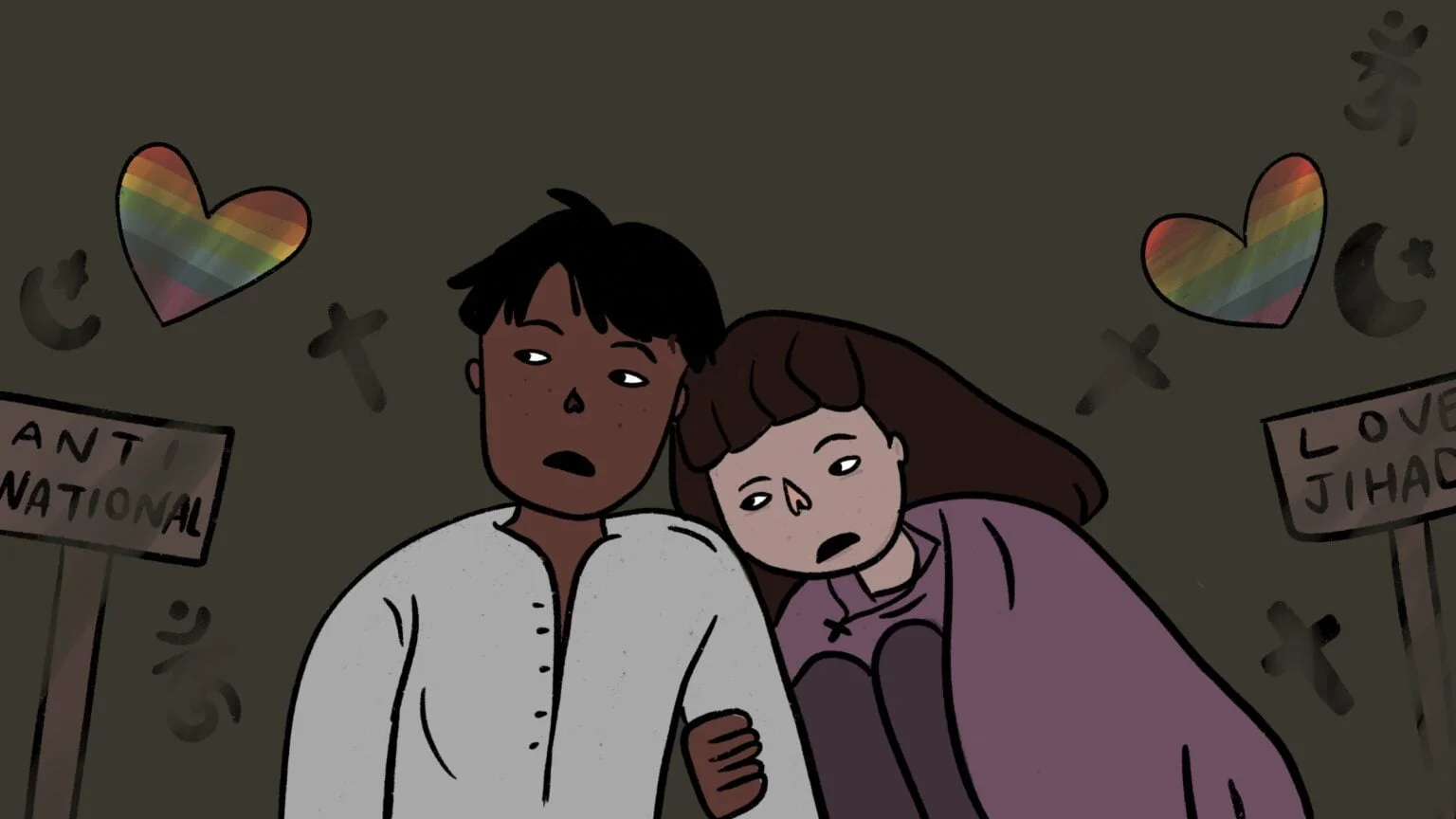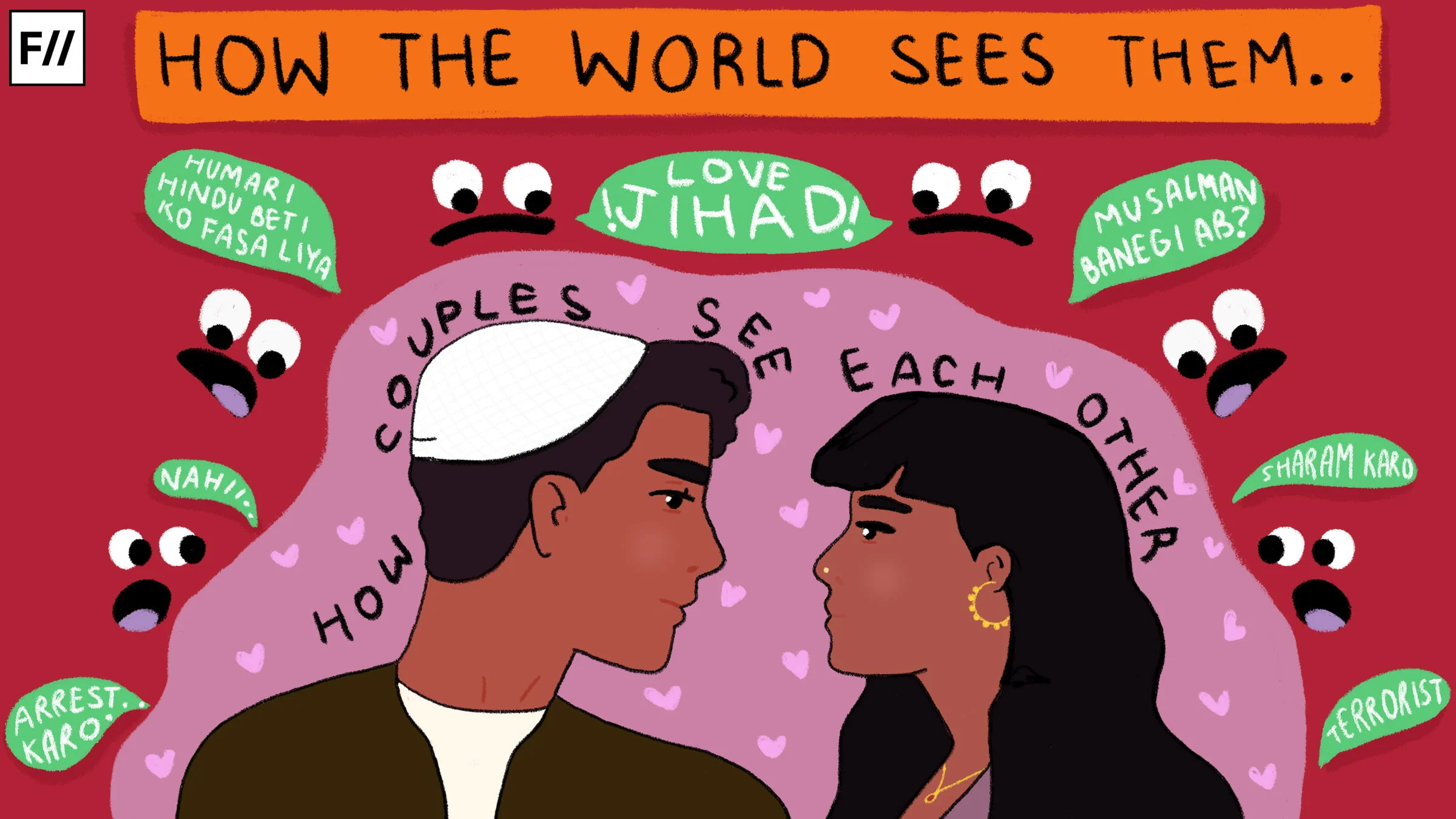The Uttar Pradesh government has once again implemented an anti-conversion and Islamophobic legislation by amending the State’s rules surrounding registration of marriages. According to the rules issued by the Uttar Pradesh Government’s Stamps and Registration Department in June 2025, it is now mandatory for a Pandit, Qazi, or Priest, along with an immediate family member of the couple, to be present during the registration of any marriage in the state. In addition to the presence, the officiator of the marriage is also asked to submit an affidavit confirming the same and might be asked to depose in front of the Registrar if required.
Most importantly, the Uttar Pradesh State government has banned city hopping for marriages by making it mandatory that runaway marriage couples or couples whose marriage is not approved by their families can not be registered in a district if they or their parents are not its permanent residents.
These marriage registration amendments done by the Uttar Pradesh government are driven by their Islamophobic and anti-conversion ideology and are a direct attack on the autonomy of individuals as they are not allowed to marry and be with the person they want to.

The surveillance on young couples, especially inter-caste and inter-faith couples has increased tremendously under the current Hindutva BJP-RSS government as evident by the introduction and implementation of various other laws such as the Unlawful Conversion of Religion Ordinance, 2020, also known as the love-jihad law in Uttar Pradesh and the Uniform Civil Code (UCC) in Uttarakhand, which shows a pattern of how this Hindutva Government has been legalising hatred towards Muslims, Dalits, women, and all the marginalised communities.
Does the Hindutva BJP government really want to protect Its citizens?
The recent amendments regarding marriage registration in Uttar Pradesh came after a judgement given by the Allahabad High Court in May, 2025 where it directed the Deputy Registrars and concerned officials to amend the Uttar Pradesh Registration Rules, 2017 to ‘ensure Aadhaar-based authentication of the bride and the groom, specially run-away couples, for marriage registration in Uttar Pradesh as there has been a rise in the registration of fake marriages registered through forged documents‘.
While the Uttar Pradesh government claims that the amendment or provision would benefit/protect people but in reality, it is a clear example of how this Hindutva government has turned law into a tool to exert social control over its citizens. ‘The scarcity of alternative institutional mechanisms, such as timely police protection or support for self-choice marriages, makes people who marry against the wishes of their families much more vulnerable. In such cases, the legal system risks functioning as an instrument of social control rather than a protector of personal rights. When the law privileges collective authority over individual will, it weakens the constitutional promise of freedom in personal and marital decisions‘, said Nitin (they/them), a resident of Uttar Pradesh. He further emphasised that the increasing legal restrictions surrounding marriage, particularly those that require parental presence or consent for a union to be considered valid, pose a significant threat to individual autonomy and the freedom to choose one’s partner.
Prioritising surveillance over safety in a patriarchal, misogynist, islamophobic, casteist society
‘In this society, especially in an extremely patriarchal and misogynist state like Uttar Pradesh where women are killed and/or raped for loving a man from a different caste and are subjected to violence on a regular basis, the Uttar Pradesh government is more concerned about taking women’s autonomy rather than working towards ensuring their safety‘, said Anjali, a resident of Uttar Pradesh, exposing the prioritises of the Government.

She also explained how these marriage amendments do not protect women at all but takes away their autonomy, especially if they belong to marginalised and economically weaker sections of society, as not every person can afford to record a video of their marriage and transfer it to a pen drive, only to submit it to government officials and get subjected to surveillance and harassment.
She further added that even if these marriages, especially inter-faith marriages where the man is a Muslim and the woman is a Hindu, get registered, there is no provision that can protect the Muslim man from getting arrested for committing the bogus love-jihad mentioned under the love-jihad law.
The existence of caste, class, and religious barriers that are ingrained in the minds of the people makes inter-caste and inter-faith marriages even more scarce and dangerous, as the people involved, especially if they are Muslim, become prone to harassment and violent attacks such as honour killing and mob lynching.
‘People are already scared of engaging in inter-faith and inter-caste marriages because of the rising Islamophobia and Casteism in the state and country. So, even if any priest, qazi, or maulvi officiates an inter-faith or inter-caste marriage, there are high chances that he will refuse to come forward as a witness and the marriage will not be registered at all‘, said Anjali, a resident of Uttar Pradesh. She further added that even if these marriages, especially inter-faith marriages where the man is a Muslim and the woman is a Hindu, get registered, there is no provision that can protect the Muslim man from getting arrested for committing the bogus love-jihad mentioned under the love-jihad law.
Who benefits from these marriage registration amendments in Uttar Pradesh?
The only set of people who benefit from the recent marriage amendments done by the Uttar Pradesh are the Islamophobic and casteist Sangh and their stooges, as they are constantly trying to shred the secular fabric of the country. By creating and reinforcing the bogus narrative of love-jihad in the name of ‘protecting Hindu women from forced conversions‘, the Hindutva government has increased its voter base by legalising Islamophobia and reinforcing its highly problematic ‘Hindu-first and Hindu-nation‘ ideology.

While the State and the government claim that these changes will make the process of registering marriages more formal and organised for everyone, they conveniently ignore how these amendments are biased towards the marginalised communities as they target them by stripping them of their autonomy and rights. In addition to it, by asking the couples, especially inter-faith and inter-caste couples, to submit extra documents in the form of affidavits, address proof, the Government officials now hold more power over the people as they can conveniently use that information to scrutinise them and harass them in the name of protecting them.
Lastly, this set of marriage registration amendments, along with other anti-conversion, Islamophobic laws, benefits and protects the upper-caste Hindu families by justifying their conservative and problematic actions.
Lastly, this set of marriage registration amendments, along with other anti-conversion, Islamophobic laws, benefits and protects the upper-caste Hindu families by justifying their conservative and problematic actions. It provides a so-called legitimate reason for patriarchal households to violate the privacy of women and children while abusing them. It also prevents people from breaking the caste purity and the status quo by restricting inter-caste marriages.
To conclude, the people who do not benefit from the legislations implemented by this Hindutva government as the same people who are affected by them the most, that is, Muslims, Dalits, women, and all marginalised communities. These amendments do not seek to protect women in any way but are a means of taking away their autonomy, justifying Islamophobia, casteism, and any form of discrimination against any community that seems to pose a “threat” to the BJP-RSS’ Hindutva.
About the author(s)
Neha (She/They) is a neurodivergent queer writer who illustrates occasionally. A student of media and gender studies, Neha is critical of the patriarchal and heteronormative world around her and looks at it from the political lens of intersectionality. Although socially introverted, you can find Neha getting out of her shell and interacting with people, getting to know their experiences, and analyzing how the biased structure of the society impacts the marginalized.






Good Report, great to see Feminism India covering such topics!